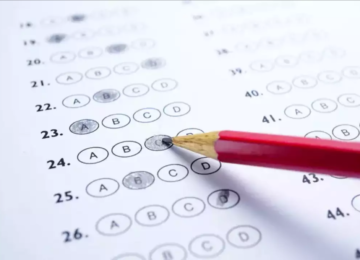Transform Your Life Today play casino online real money India, a nation with a vast and youthful population, faces a critical challenge: ensuring that its workforce is equipped with the skills and competencies needed to thrive in a rapidly evolving global economy. While India boasts a large number of graduates each year, a significant percentage lack the necessary skills to meet the demands of employers. This skills gap has become a pressing issue, impacting economic growth and hindering individual career prospects. This article explores the key factors contributing to the employability challenge in India and the initiatives being undertaken to bridge the skills gap.
The Employability Crisis: Key Factors
Several factors contribute to the skills gap and employability challenges in India:
Outdated Curriculum: Traditional educational curricula often fail to keep pace with the rapidly changing needs of industries. This results in graduates lacking the skills and knowledge that are relevant to current job roles.
Lack of Practical Training: Many educational institutions lack adequate emphasis on practical training and hands-on experience. This leaves graduates unprepared for the challenges of the workplace.
Poor Quality Education: In some regions, the quality of education is subpar, leading to graduates with inadequate foundational skills.
Limited Industry-Academia Collaboration: There is a limited collaboration between educational institutions and industry, which results in a disconnect between what is taught in classrooms and what is required in the workplace.
Focus on Rote Learning: The education system often emphasizes rote learning over critical thinking, problem-solving, and creativity, which are essential skills for success in today’s dynamic job market.
Communication Skills Deficiencies: Many graduates struggle with effective communication, both written and verbal, which is a critical skill for most jobs.
Lack of Soft Skills: Beyond technical skills, employers also value soft skills such as teamwork, leadership, adaptability, and emotional intelligence, which many graduates lack.
Government Initiatives to Address the Skills Gap
The Indian government has recognized the importance of addressing the skills gap and has launched several initiatives to promote skill development and enhance employability:
Skill India Mission: The Skill India Mission aims to train over 400 million people in various skills by 2022. The mission encompasses several initiatives, including the Pradhan Mantri Kaushal Vikas Yojana (PMKVY) and the National Skill Development Corporation (NSDC).
Pradhan Mantri Kaushal Vikas Yojana (PMKVY): PMKVY provides skill development training to youth, focusing on industry-relevant skills and placement assistance.
National Skill Development Corporation (NSDC): NSDC is a public-private partnership that promotes skill development by providing funding, technical support, and quality assurance to training providers.
Sector Skill Councils (SSCs): SSCs are industry-led bodies that develop skill standards, assess and certify trainees, and promote industry-academia collaboration.
National Apprenticeship Promotion Scheme (NAPS): NAPS promotes apprenticeship training by providing financial incentives to employers who hire apprentices.
Private Sector Initiatives
In addition to government initiatives, the private sector is also playing an increasingly important role in skill development:
Industry-Specific Training Programs: Many companies are offering industry-specific training programs to equip their employees with the skills they need to succeed.
Corporate Social Responsibility (CSR) Initiatives: Many companies are investing in skill development initiatives as part of their CSR efforts.
Online Learning Platforms: Online learning platforms are providing affordable and accessible skill development opportunities for individuals across the country.
Collaboration with Training Institutes: Companies are collaborating with training institutes to design curricula and provide industry exposure to students.


